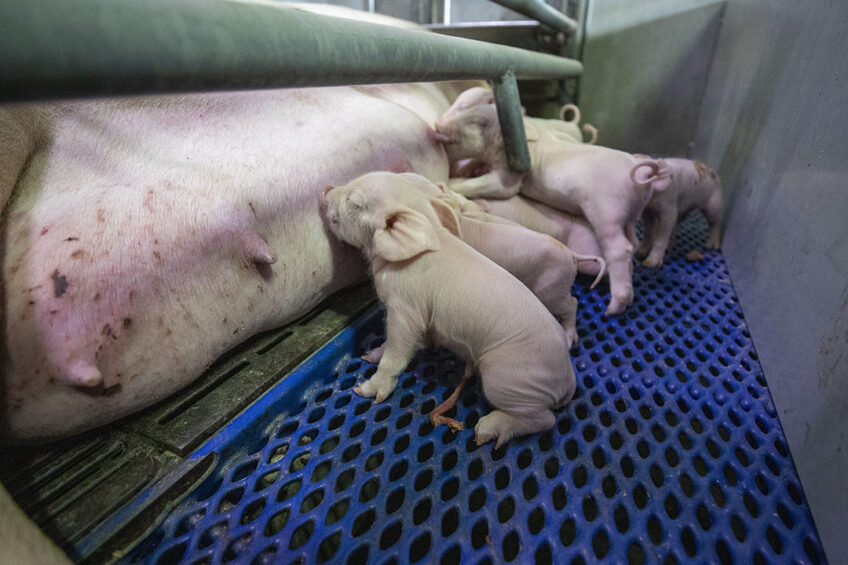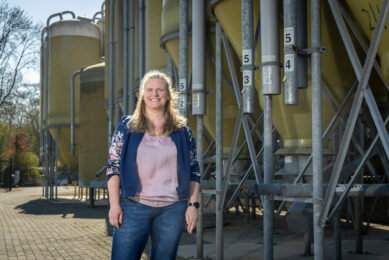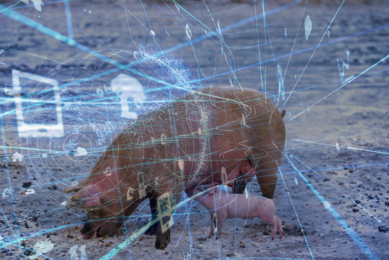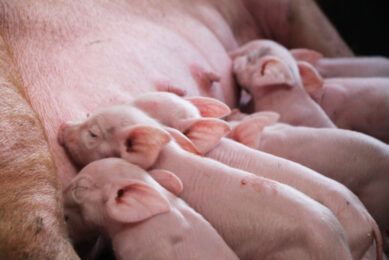What is the impact of laminarin supplementation in sows?

Researchers from China investigated the effects of dietary laminarin supplementation on sows’ reproductive performance, nutrition composition of colostrum and milk and faecal microbiota.
During late pregnancy, rapid foetal development causes intense changes in sow physiology, metabolism and immunity. Therefore, it is essential to maintain normal metabolism, immunity and gut microbiota. In addition, the maternal microbial communities are transferred to the newborn piglets and shape their microbiota. Therefore, special attention should be paid to the impact of the sow diet during late pregnancy on gut microbiota. Laminarin is a prebiotic mainly present in the cell wall matrix, intercellular space, and secreted mucus of brown algae. It is widely used in food and pharmaceutical industries because of its anti-tumor, anti-mutagenic, anti-inflammatory, and antioxidant properties.
Data collection
A total of 40 Landrace × Yorkshire multiparous sows on day 85 of gestation with similar age, body weight, parity and reproductive performance were randomly divided into four dietary treatments. Sows were fed basal pregnancy diet or basal pregnancy diets supplemented with 0.025%, 0.05%, or 0.10% laminarin, respectively. The litter size at birth, number born alive per litter and number of healthy piglets, the bodyweight of each piglet and litter weight were recorded at birth. In addition, average daily feed intake, bodyweight, backfat thickness and total milk yield of individual sows were recorded. The culling and death rate, average daily gain and daily litter gain of piglets during lactation were calculated. Finally, blood, milk, colostrum and faecal samples from all sows were collected and analysed.
Impact on the performance of sows and piglets
Supplementing laminarin to the late pregnancy diet increased number of piglets born alive per litter and average daily feed intake during the lactation and improved the milk yield of sows. In addition, maternal supplementation of laminarin enhanced average daily gain of piglets and decreased the culling and death rate of piglets.
Impact on the immunity and hormones of sows
Dietary supplementation of laminarin decreased the concentration of interlukin-2 but increased IgG concentration in serum of sows on the day of parturition suggesting that laminarin might improve health status of sows. In addition, dietary supplementation with laminarin reduced the concentration of progesterone in sows’ serum on the day of parturition.
Impact on the composition of colostrum and milk of sows
Dietary supplementation of laminarin enhanced the concentrations of IgG, IgM, and IgA and the quality of colostrum and milk in sows, thus improving the survival and healthy growth of neonatal piglets. Adding laminarin increased methionine content in milk, although the content of other amino acids did not change. Furthermore, the contents of fatty acids including capric acid, myristic acid, tetradecenoyl carnitine, palmitoleic acid and eicosapentaenoic acid in milk were higher in laminarin-fed sows. The increase in fatty acid content in colostrum and milk favours the growth performance of lactating piglets.
Impact on faecal microbiota of sows
Dietary laminarin supplementation decreased the relative abundance of Proteobacteria which is pathogenic to the host and reflects the unbalance of gut microbiota structure. In addition, the decrease in the relative abundance of Proteobacteria was associated with increased average daily feed intake, and IgM and IgG in colostrum of sows during lactation. Dietary laminarin supplementation increased the relative abundance of NK4A214.
The increase in the relative abundance of NK4A214 correlated with lower culling and death rate of piglets, and serum progesterone level in sows. Dietary laminarin supplementation increased the relative abundance of Christensenellaceae which is widely distributed in pig gut and mucosa and is very important for host health. Moreover, the increase in the relative abundance of Christensenellaceae was accompanied by decrease in the contents of interlukin-2 and progesterone in the serum of sows but an increase in the average daily feed intake of sows and IgG content in the serum.
The authors concluded that dietary supplementation of laminarin during late pregnancy and lactation increased the milk yield and the average daily feed intake of sows as well as the number born alive per litter and average daily gain of suckling piglets and reduced the culling and death rate of suckling piglets and the inflammatory response of pregnant sows and improved the quality of colostrum and milk.











